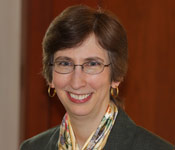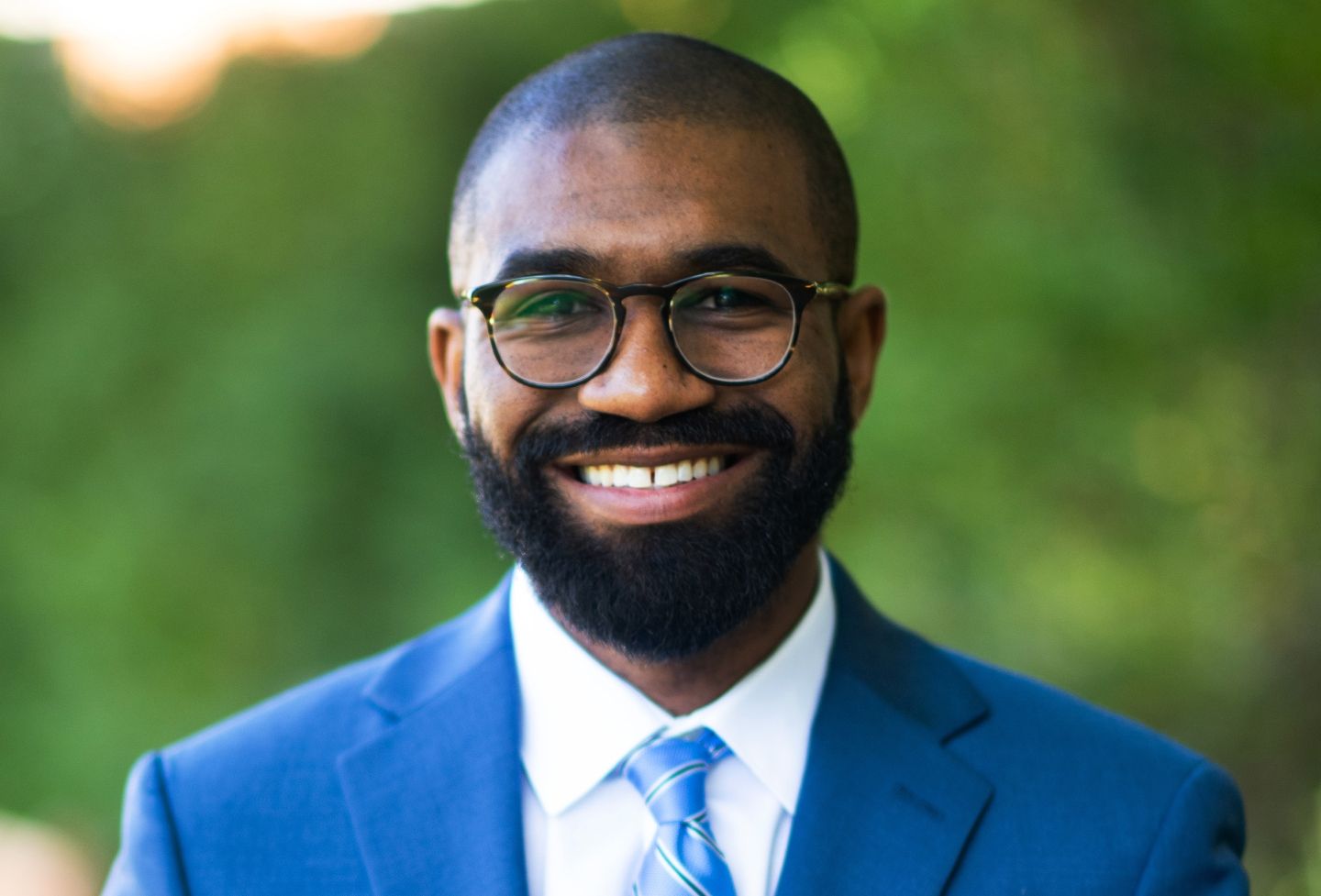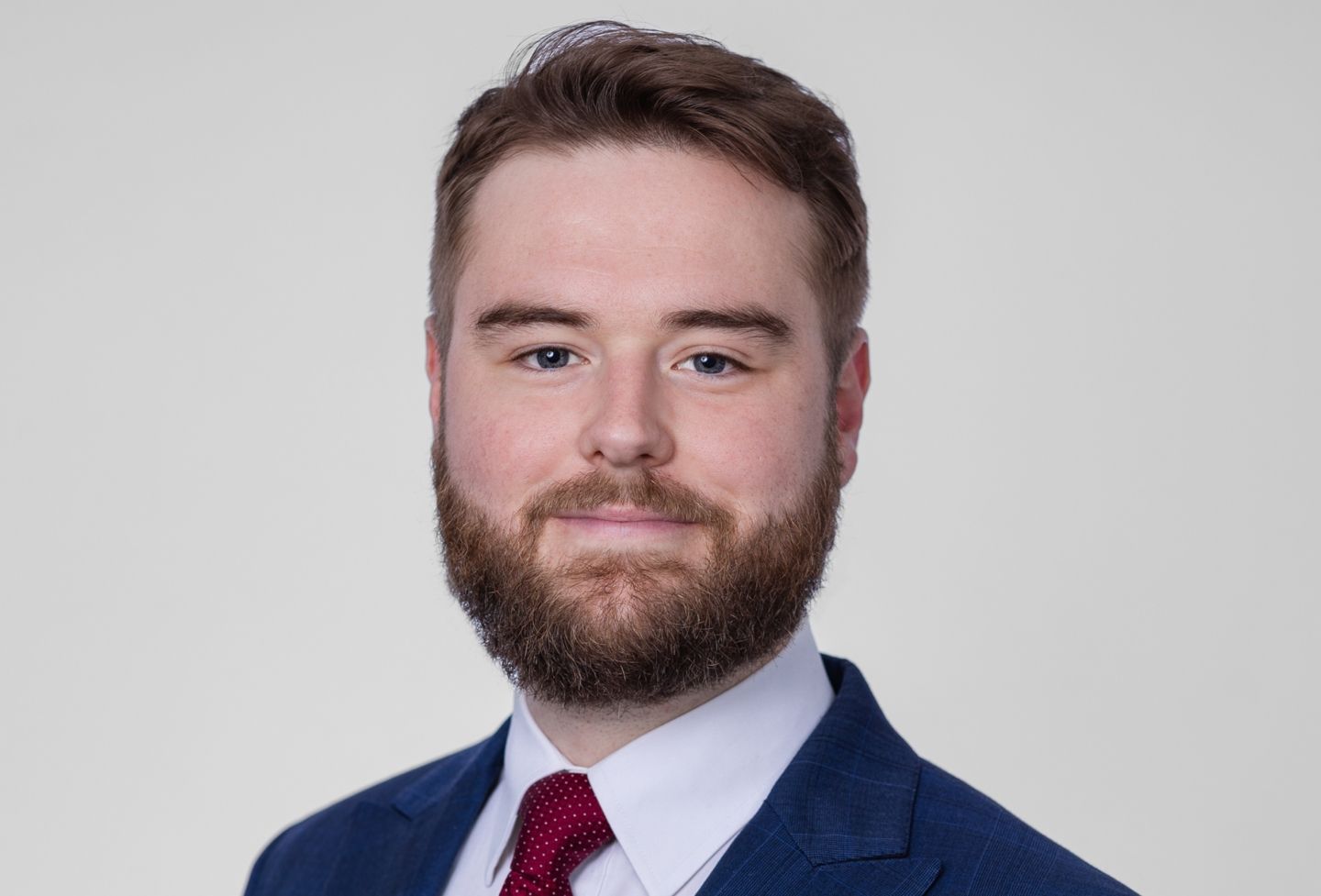UVA Law Student Salima Burke Wins Statewide Pro Bono Award
Salima Burke had a firsthand view of the impact law could have when she was in middle school and saw bussing battles divide her hometown of Wilmington, Del., in the late 1970s.

"Issues of equal access to education were very much at the forefront of public discussion," said Burke, now a third-year student at the University of Virginia School of Law. "I started thinking about what I could do in my own life to try to make things more fair."
That principle has guided Burke to invest in a career in public interest lawyering, including donating more than 480 pro bono hours — as much as 20 each week — to causes she cares about while attending law school. Burke's commitment was recognized last week when she was named the recipient of the 2012 Oliver White Hill Law Student Pro Bono Award, a statewide honor given by the Virginia State Bar Committee on Access to Legal Services. Burke will receive the award at a ceremony on March 26 in Petersburg, Va.
Kimberly Emery, the Law School's assistant dean for pro bono and public interest, nominated Burke for the award.
"Salima has volunteered hundreds of hours to a wide variety of causes, including human rights, immigration, women's rights, child advocacy, seniors and health care reform," Emery said. "She is an extraordinary pro bono volunteer who is always ready and willing to serve those who lack access to the legal system."
Burke, who has a bachelor's degree in politics from Princeton University and a master's degree in Islam and Muslim-Christian relations from Georgetown University, spent her early career working for Legacy International, a nonprofit in Bedford, Va., focused on training youths and professionals — many from war-torn regions — in cross-cultural competency, conflict resolution and leadership development. After years of service there, she decided to expand her skills and go to law school.
"I'd like to work in legal aid, applying what I learned in my earlier career to the issues facing people closer to home," Burke said. She added that she hopes to work with children and young adults, as well as seniors at risk of homelessness or displacement.
In her legal studies, Burke describes herself as a "generalist," but has focused much of her volunteerism on the Piedmont Court Appointed Special Advocate program, through which she works with children in the court system. As a CASA, Burke reports to the court on circumstances affecting a child's life and makes recommendations that would best serve the interests of the child and help ensure that he or she has a safe and stable home.
"CASA has helped me better understand how the law affects a specific child and that child's network of family, teachers and other care providers," Burke said. "It's a way to build on what I'm learning in the classroom by seeing what happens after a court's decision regarding custody is handed down."
Burke's many hours of service also include a research project for the nonprofit organization Musawah, for which she worked with a team of Law School students investigating how Islamic family law affects women in Muslim-majority countries.
"In particular we were looking at how the formulation of family law in those countries was affecting women's rights and autonomy," she said.
That research was compiled in a series of reports for a Musawah planning meeting in Cairo, which Burke attended in January 2010.
Apart from her volunteer efforts, Burke also has contributed to the community through the Law School's clinics in housing and advocacy for the elderly. Last summer she received a Virginia Law Foundation fellowship to work with the Legal Aid Society of Roanoke Valley on issues of consumer debt, housing and landlord-tenant issues, and unemployment benefits.
Through her work for legal aid organizations and clinics, Burke said, she became more aware of the need to bring a holistic perspective to bear.
"A parent's loss of employment can end up leading to a loss of housing, which in turn can jeopardize a child's health or ability to succeed in school," she said. "In a case like that, an attorney can make the difference between a family losing their home and the situation being straightened out in a way that's satisfactory to all parties concerned."
Burke has gained experience in legal services in large cities and abroad. Over winter break last year, she volunteered in immigration services for the organization Catholic Charities Community Services in New York City. In the summer of her first year she received a Public Interest Law Association fellowship to work for the Centre for Applied Legal Studies at the University of the Witwatersrand in Johannesburg , where she researched constitutional issues that are arising under the post-apartheid regime.
"It helped me become more aware of varieties of constitutional interpretation," she said — not to mention improve her foreign research skills. (In the fall she started a job at Virginia Law as a teaching assistant for a legal research course for LL.M. students.)
In her spare time, Burke also is an organizer for Child Advocacy Research and Education, a student group that sponsors events looking at legal issues affecting the well-being of children, from education and child abuse laws to the impact of immigration laws on children of undocumented immigrants.
Burke traces her dedication to public service in part back to her youth.
"My parents were a great inspiration for me, very concerned about the needs of others," she said. "From early on I was challenged to recognize inequalities, and also I was confronted with the kinds of social unrest that can result when people are being denied basic rights such as a quality education."
Founded in 1819, the University of Virginia School of Law is the second-oldest continuously operating law school in the nation. Consistently ranked among the top law schools, Virginia is a world-renowned training ground for distinguished lawyers and public servants, instilling in them a commitment to leadership, integrity and community service.


